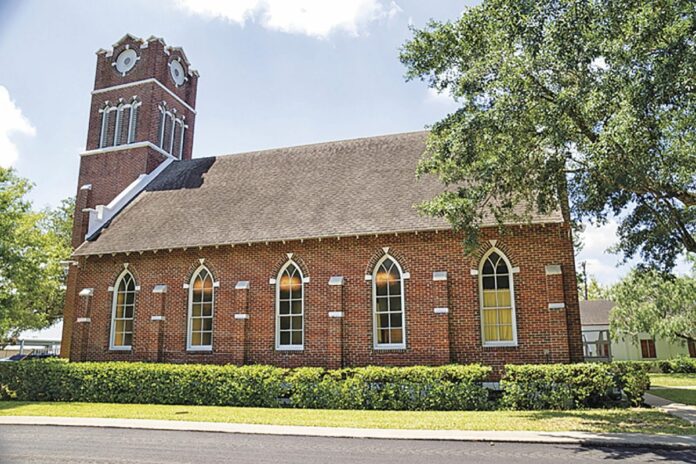LYFORD — One hundred years ago in a farming village named Stockholm, a group of Swedish settlers gathered to start a church.
Just four years earlier, in 1912, the immigrants began settling in the brush-covered region of Willacy County, lured by companies using Swedish newspapers to hawk low land prices.
“The ads were to buy cheap land in a new frontier,” Stephen Vassberg, a descendent, said. “The people all came to clear the land and start farms.”
In Stockholm, the settlers built a two-room school house, a cotton gin and a general store.
To hold on to their Lutheran heritage, they gathered in their homes to worship.
“It was quite a bustling community,” Vassberg said. “They spoke Swedish at home at the dining room table, they spoke Spanish outside with the children of the workers and they learned English when they went to school.”
From as far as their homeland, many families brought a Flyttningsbetyg, or a letter of transfer, to help them affiliate with a Lutheran Church.
Upon the settlers’ request, the Lutheran Church sent a pastor to Stockholm to organize Bethel Evangelical Lutheran Church in 1916.
“I’m proud of our congregation,” said Danny Vassberg, Stephen Vassberg’s cousin. “It has a special place in my heart.”
This coming weekend, the congregation, made up of about 100 members, celebrates the 100th anniversary of its founding.
“It’s unique a church has survived 100 years,” Stephen Vassberg said. “It started as a strictly Swedish Lutheran church and now serves everyone, regardless of ethnic background.”
Today, the tall red-brick church at 8233 Park Ave. stands as a legacy of the Swedish immigrants who founded the congregation.
In 1926, the settlers made plans to build their church a couple of miles east of Stockholm, in Lyford, then a railroad stop that served as the area’s business hub.
The settlers hoped the sale of their cotton crop would fund construction of the church, but the crop failed, Stephen Vassberg said.
So they turned to the Lutheran Church for donations.
Danny Vassberg recalls his father, Carl Vassberg, led the settlers in the construction of the church.
Soon, fired-red brick was arriving by rail, Stephen Vassberg said.
Nine months later, the settlers completed Bethel Lutheran Church.
For more than 10 years, the church gathered $7,490 in donations to help pay off its $10,000 loan.
“Some folks survived a lot to build the church and keep it growing,” Danny Vassberg said. “It’s an honor to keep it growing.”
In Willacy County, the church has become a tourist draw.
Inside, wood cuts by master carver Wally Lueth depict the 12 apostles while another portrays Jesus Christ.
About 12 years ago, Lueth carved the works out of butternut after the Rev. John Huegel, then the church’s pastor, made the request.
“There’s a lot of history in the church,” said Patti Larson, chairwoman of the 10-member committee that began planning the centennial celebration about a year ago. “We have a few members who are children of our founding fathers.”
For residents like Stephen Vassberg, the church is like home.
“I grew up in the church,” he said. “It’s a part of my heritage.”
About two miles west of the church, few remnants remain of Stockholm.
Today, off FM 491, a state historical marker stands near a cemetery whose headstones are carved with the names of the area’s Swedish settlers.
“The Swedes, who settled here between 1912 and 1914, were attracted by the area’s abundance of inexpensive, fertile farmland,” the state’s 1985 historical marker reads. “They formed a farm club to share information and problems, and raised cotton, grain and corn. Some were dairy farmers. Stockholm, also known as Turner Tract, had churches, a school, grocery store and cotton gin. Near this site is the Stockholm Cemetery, one of the few physical reminders of the ghost town.”




